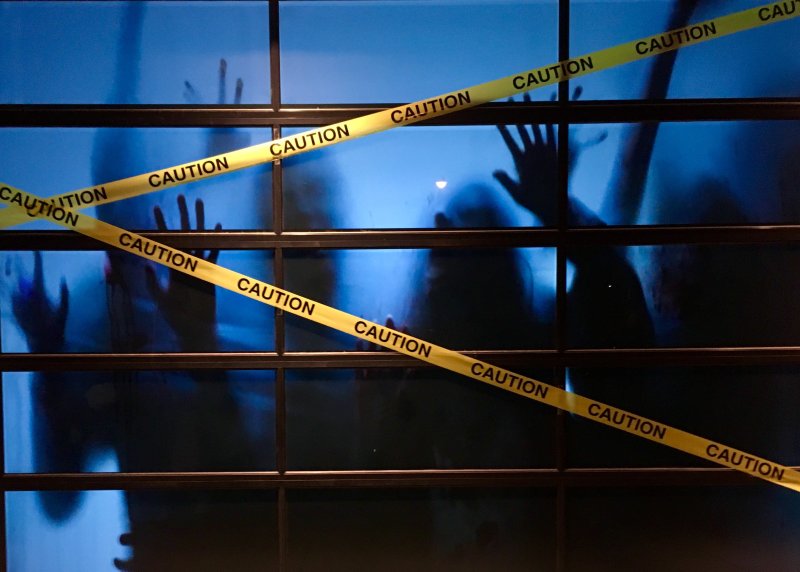
Did you have a scary Halloween? If so, how did that make you feel?
A recent study published in the journal Emotion examined brain activity after a voluntary scary experience. The researchers found the experience put people better moods and with overall decreased brain activity. “We think it’s very similar… to the runner’s high experience, where you’re really pushing yourself and your sympathetic nervous system is in go-mode,” said study co-author Margee Kerr, a sociologist at the University of Pittsburgh. Once you’re out of a staged scary situation, feel-good endorphins are circulating through the body.
The study recruited people who had purchased tickets for Pittsburgh’s “extreme” haunted house ScareHouse. Two hundred sixty-two people filled out surveys about their mood before and after their visit, and 100 wore sensors that monitored brain activity before and after they went through the house.
After the experience, roughly half reported being in a better mood, 33% reported no significant change and 17% reported a worse mood. There were no significant gender differences. Most said they felt happy. Mood increases were especially significant among those who said they had “challenged their fears,” and among people who described the visit as “intense” and “thrilling.”
One would expect feelings of anxiety and stress to decrease after a frightening experience, but there was a surprising finding: When the people who wore sensors completed tasks like counting backward and viewing pictures, they had less total brain activity after their visit. This suggests that “being scared interrupts their thinking,” Kerr says.
This really isn’t a bad outcome. Decreased brain activity could mean one of two things — people were processing information more efficiently, or they were in a subdued state almost akin to meditation. Considering some said they felt somewhat dazed after the experience, the second explanation seems more likely, Kerr says.
These findings are significant because they may apply to other situations. Kerr says she hopes to use them in future research about exposure therapy, a practice commonly used in phobia treatment that involves exposing people to things that scare them to gradually reduce fear. Exposure therapy can be unpleasant, but starting with a “fun scare” (with the subject’s permission, of course) might make the therapy easier.
I’m just glad I wasn’t part of this study.
For the complete story, see “You Love Haunted Houses Because They’re Playing a Trick On Your Brain” by Jamie Ducharme (https://time.com/5433554/haunted-houses-fear-brain/?). The photo came from that site.
